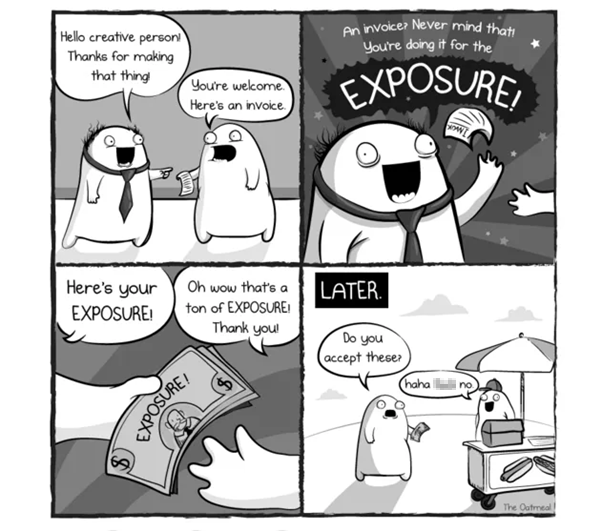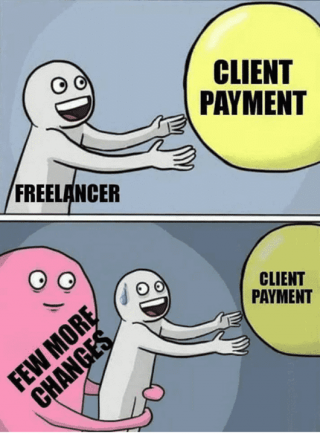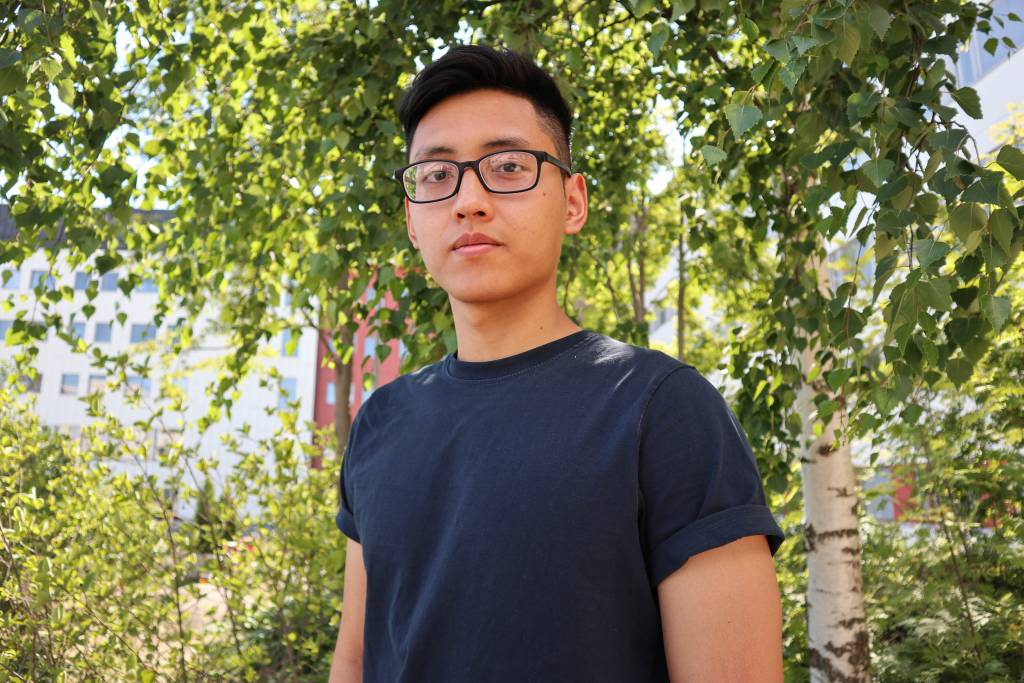“It is actually very easy to be a videographer in Finland, without the need of speaking Finnish,” said no one ever. In fact, it can be quite challenging to kick off your filmmaking career in Finland with the 3 big NOs: speaking the language, familiarity with the local market, and money. If, like me, you find yourselves in that situation, this survival guide is for you. I collected my stories and some basic tips to help you out.
1. Make the most out of school projects and relationships
How could a student find projects, afford the equipment, studio renting, and software subscriptions while living on a budget? TAMK has all the answers! Starting out as a student and bearing in mind that university may be the only place I could rely on for all the creative work, I quickly realized that my best choice was to work and learn as much as possible during my time at school and utilize school’s resources.
It is not only about using equipment from school storage for my projects but also taking advantage of the educational environment. Having teachers and peers critique my work helps me instantly learn from my mistakes and get inspired by them.

Working on various projects in the field of Fine Arts, Interactive Media and Animation gave me the chance to meet so many talented people in different fields and slowly build my network. Sometimes, opportunities show up in the form of a paid client project through school. Other times, former classmates want to collaborate for their upcoming projects and recommend you to their client. You never know when a suitable project pops up. Meeting people and taking the chance to do cooperative works could be the fastest way to make it happen.
2. Collaborate with small production companies
Last month I just finished a cooperation work with Kipinä Films for the making of a promo and bts videos for Tappara ice hockey team. I got the job offer from the production company founder. We met during the “Moving Image” minor at TAMK last year, and since then we have been collaborating on several projects.
Small production companies like Kipinä usually look for a freelancer when they work on big projects that need extra personnel or require a specific set of skills they cannot provide. It is quite often that they send recruiting emails to media majors in TAMK to look for animators, sound engineers or interns because they can’t afford more experienced professionals.

On a field trip to Gigglebug headquarters in Helsinki last year, our animation class received a valuable piece of advice from Martti Sirkkola – Production Manager at Gigglebug Entertainment. “If applicants are the earth, their dream training places are the sun, and the available and suitable projects for them are the moon; then the chance of getting an internship in a dream workplace would just be as hard as aligning the three planets. It rarely happens but it is not impossible,” he said.
Production houses and animation companies like Gigglebug do look at open applications sent to them daily. But if the right person comes at the wrong time, there is nothing they can do about it. Therefore, Martti’s tip to freelancers and students is to keep sending open applications and don’t give up even if you get rejection. Remember to send updated e-mails, monthly or quarterly when you have a new reel or updated portfolio to let them know that you are serious with the company and are getting more and more experienced.
3. Do free stuff
It is common that people think the reason why students have to do lots of unpaid work is that they do not have sufficient experience. It is not necessarily true. A number of my classmates who have a good set of skills are still willing to work for free in projects that interest them. No matter how good you are at doing something, if nobody ever heard your name and knew how you work, it just won’t work.
Let me clarify this first: I only work for free when I see an opportunity of making something really cool and know for sure that I will enjoy making it. Other than that, there is no reason putting effort into projects that bring me neither fun nor recognition in the end.
Unpaid work not only is a chance to enrich your experience and portfolio/showreel but also helps people realize how awesome your work is and how professional you are. Future clients might come through word-of-mouth recommendations and sometimes the values gained from free work outweigh a small amount of payment (which is common in all the projects that students work on). Moreover, being a student ambassador and making videos about your university or student life could be an easy way to start and gain exposure for yourself.

4. Use freelance platforms
I put this in the end of the list because freelance sites are extremely competitive platforms and it is not a sustainable way of working. Most of the time the pitch that wins a project is the cheapest, not the best. As a result, a lot of your time and energy pitching for a project, eventually, goes to the trash bin. But I also understand that as students we do not usually have many choices. As long as we can earn something, either money or experience, it is beneficial.
Finding freelance projects to work online in your free time might be a good idea when you want to earn some quick money in a short amount of time. Some platforms are well known for freelancers in the creative field like twine.com, Fiverr, upwork.com, etc. Keep in mind that depending on the site you chose, there will be some kind of fees; like processing fees, membership fees and service fees. Eventually the money that goes in your account is lower than expected. Check out this link to learn how top freelance platforms charge their members and clients.

At the early stage of my exciting journey in Finland, I have gained so many valuable lessons thanks to the survival guide above. Nevertheless, no matter how your career starts out, the virtues of trustworthiness, accountability and experiences are always of the utmost importance. I hope you will find in the next project, next job and people you meet an excellent opportunity to learn and explore yourself. Until next time!
– Minh





